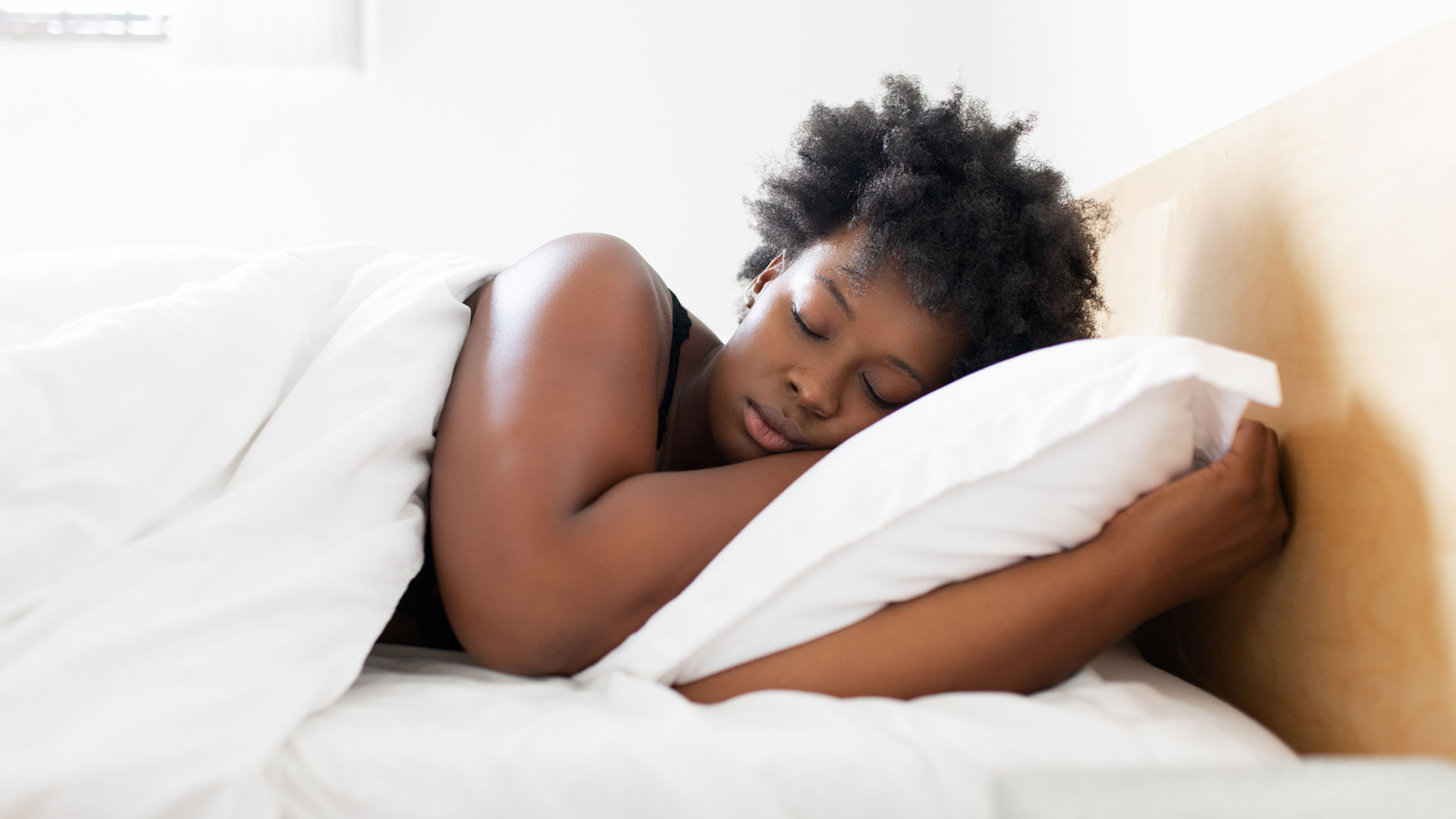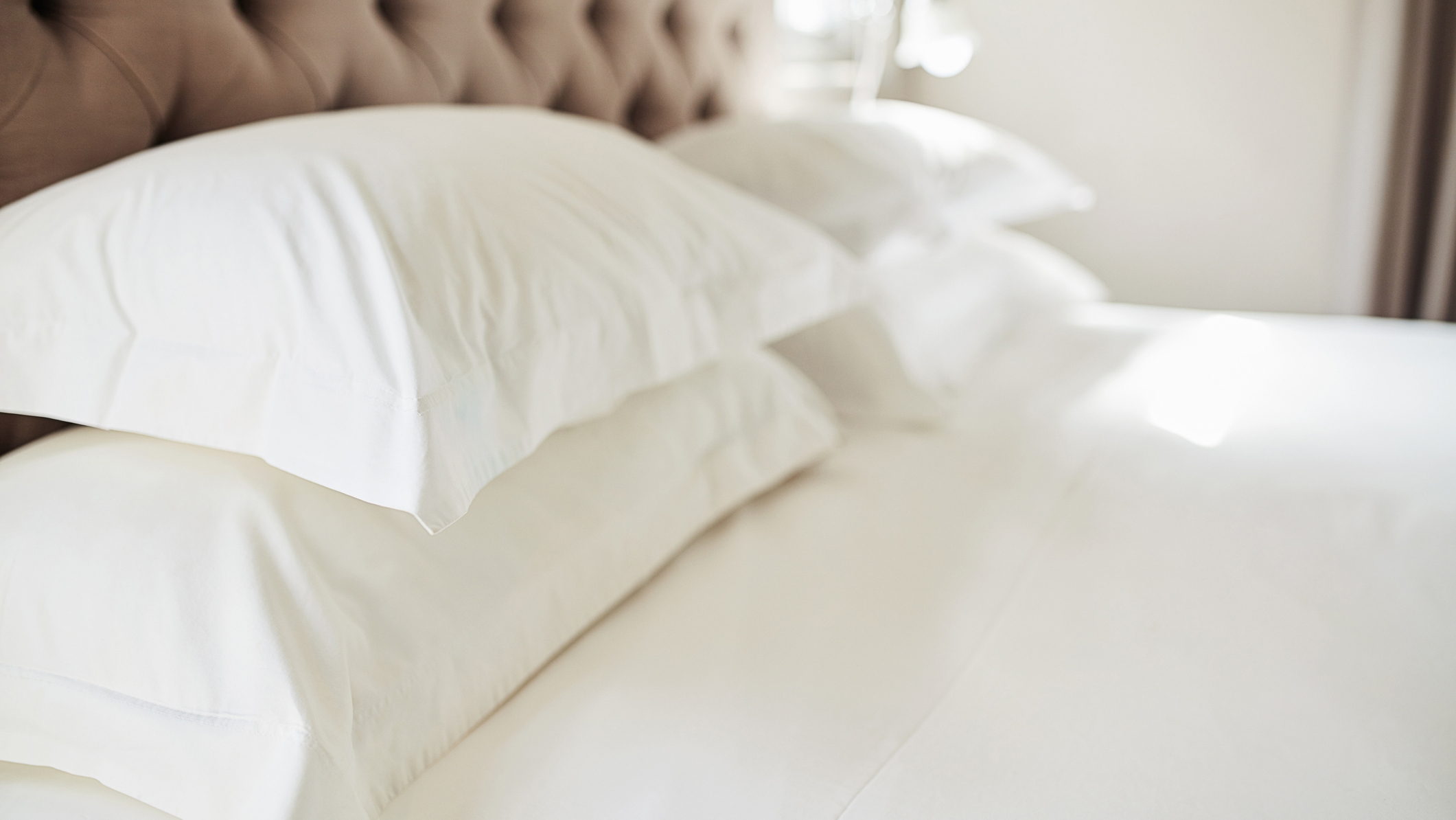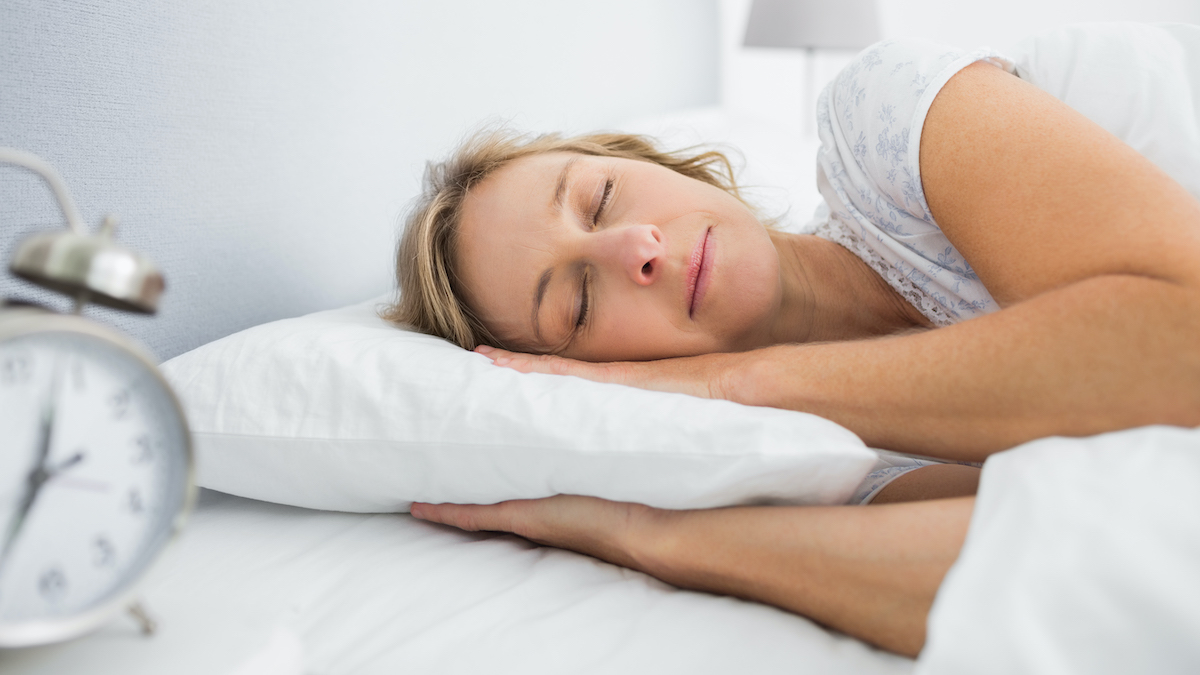Are you sleeping on the wrong pillow? Try this sleep expert's test to find out
Your choice of pillow can be the difference between good and bad sleep – do this test to see if yours is up to scratch

Sign up for breaking news, reviews, opinion, top tech deals, and more.
You are now subscribed
Your newsletter sign-up was successful
You might be getting the right amount of sleep every night, but are you getting enough quality sleep? If you're racking up enough hours but waking up with aches and pains and generally feeling out of sorts throughout the day, it could be that your pillow is the culprit.
Finding the best pillow for your sleeping position can make the world of difference to the quality of your slumber, as can knowing how many pillows you should sleep with; get these two factors right and you should find that you're waking up every morning feeling fresh as a daisy. But if you're not sure whether you have the right number of pillows or if they're the perfect type of pillows for you, there's a straightforward test you can do at home that'll enable you to work it out quickly.
We spoke to Dr. Verena Senn, neurobiologist and Head of Sleep research at Emma Sleep, to find out how to identify problems in your pillow setup, and to pick up some other pillow-related tips.
- Expert explains how to wash and care for pillows so they last longer
- This is what happens to your pillows when they aren’t washed regularly
How to test if you're sleeping on the wrong pillow
When you're sleeping on the wrong pillow for your sleep style, you could be at risk of neck pain and posture issues. Thankfully there's an easy way to tell if yours suits you or not.
If you have a family member or friend nearby, Dr. Senn says you can ask them to check your head, neck and spine while your head is resting on your pillow. You could also set up your phone or camera to take a photo of yourself lying down.
This is what to look for, according to Dr. Senn: "Imagine a flat, horizontal line running up along the center of your spine. Your head should neither be above nor below your spine." If your bodyline curves or bends, then it's time to find a pillow that offers the support you need.

How many pillows should you sleep with?
"There is no one size fits all when it comes to the number of pillows," says Dr. Senn. "Rather it's about figuring out the right size and number for your body." For some sleepers a single pillow will be sufficient, while for others two might offer the comfort and support they need.
Sign up for breaking news, reviews, opinion, top tech deals, and more.
The key thing to keep in mind is to ensure your head and neck are supported while in a neutral position, mitigating any stress on the seven vertebrae in your neck that can lead to pain and discomfort.
You'll also want to take into account the type of pillow you have. "If you have very thin pillows you might need more than one," explains Dr. Senn, "whereas a large pillow may create un-alignment in your neck with just a single pillow." For example, our petite tester had this issue for our Saatva Down Alternative pillow review.
How to pick a pillow and match it to your mattress
"When on the hunt for the perfect pillow, you should consider what type of sleeper you are," says Dr. Senn. Knowing your dominant sleep style (side, back or stomach) will point you towards the ideal pillow.
How about sleepers who find themselves very hot at night? Dr. Senn says the material of your pillowcase should be made with a breathable fabric – think cotton or copper – to allow heat to flow from your head into the atmosphere.
Here are Dr. Senn's recommendations for each sleep style:
- Back sleepers "should seek a thinner, flatter pillow to align the neck with the spine." For sleepers who already experience neck pain, Dr Verena suggests they opt for a more supportive pillow, such as the contouring Nolah Cooling Foam Pillow.
- Side sleepers, meanwhile, need a thicker, firmer pillow. Dr Verena says good rule of thumb is to find a pillow "as thick as the distance between your shoulder and ear." Read our Layla Kapok Pillow review for an excellent pillow for side sleeping.
- Stomach sleepers will benefit from a soft pillow...if they even want a pillow under their head at all. For the latter group, Dr Verena recommends they place a soft pillow under their stomach and pelvis for proper alignment.

Sleeping on the best mattress will only do so much for your sleep quality if your pillow isn't holding up its end of the bargain. "When choosing a pillow, it’s always worth considering the type of mattress you have, as different mattresses provide varying levels of support," says Dr. Senn.
Your mattress should support your whole body – hips, shoulder, head, and legs. Adding the right pillow will allow it to work in harmony with your bed to provide proper alignment and all-around comfort so you wake up refreshed. A good pillow should support the correct sleeping position, so you maintain good sleep posture throughout the night.
Dr. Senn emphasizes that "your pillow plays just as important a role in improving your sleep quality as your mattress." Spend some time testing out pillows of varying firmness and materials to find the right one, many come on a risk-free trial of at least 30 days too, so you'll have time to get acquainted.
Hopefully, even with such a small change, you'll be sleep better than ever. An easy way to tell is how you feel when you wake up - are you refreshed or tired and sore? You can also use one of the best sleep trackers to monitor your progress.
Alison is a freelance writer and editor from Philadelphia, USA. She is an expert mattress tester and sleep product reviewer, and has been sharing trusted buying advice and retail news for over a decade. When she isn't reviewing mattresses or hunting for deals, Alison can be found teaching/training in martial arts, fawning over skincare, and indulging in her quarantine-borne hobby: cooking.

